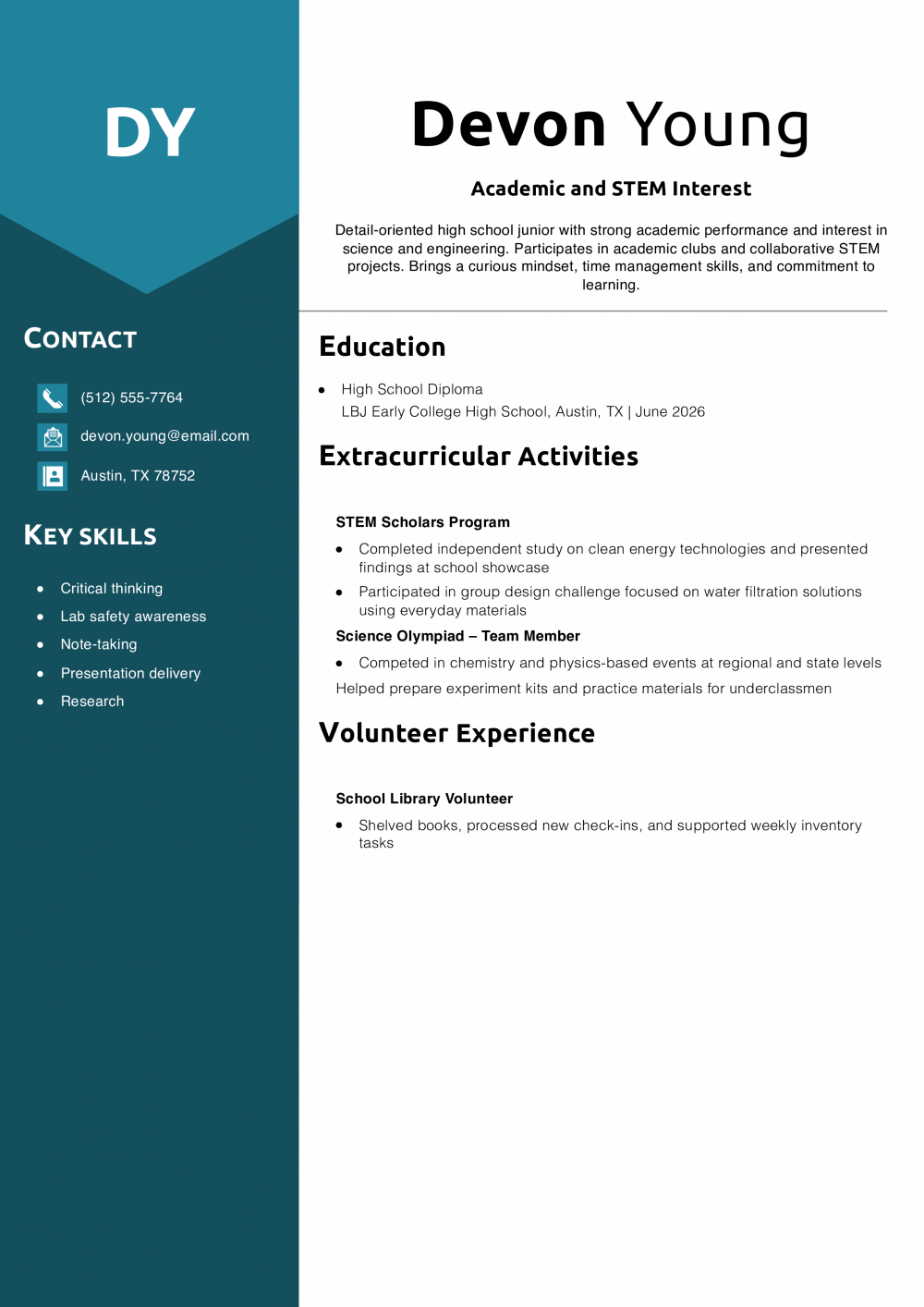Why Punctuation Matters on Your Resume
First impressions count
To your potential employer, correct, or incorrect, resume punctuation says volumes about what type of employee you’d be. It might say:
- You are sloppy.
- You are aware of your surroundings.
- You know that impressions count to colleagues and customers.
- You shouldn’t be trusted with client communications.
Further, it helps recruiters determine if you pay attention to detail, a trait frequently cited in job postings. Your choice of punctuation, or lack thereof, immediately communicates whether or not you have it.
Clarity and readability
Punctuation creates structure and conveys the meaning of your words to readers. Improper punctuation can lead to misunderstandings.
For example, a lack of commas produced this disturbing message:
Outside of work, I enjoy cooking my dog and books.
Corrected, it sounds much better: Outside of work, I enjoy cooking, my dog, and books.
Professionalism and credibility
Professionals know the value of appropriate and effective communication. If you’re applying for a role that requires regular written communication, and your application documents contain punctuation errors, you won’t be a credible candidate. Knowing how to use punctuation in a resume can mean the difference between getting an interview or not.
Common Resume Punctuation Mistakes
Incorrect use of periods
Locate periods at the end of sentences to indicate a complete thought. Use them in paragraphs of text on your resume, such as your Summary or Profile, or bullet points containing multiple sentences. You can also apply them at the end of one-sentence bullet points even though they aren’t complete sentences. Note: There is no hard and fast rule regarding using periods at the end of bullet points. The most important thing is to make a choice and be consistent throughout the resume.
Misuse of commas
Commas are often used incorrectly or not frequently enough on resumes. For correct usage, keep these guidelines in mind.
Use a comma
Between two independent sentences possessing both a noun and a verb
Incorrect:
Boosted and maintained the morale of over 100 sales representatives, conducted weekly presentations of company product and systems updates.
Correct:
Boosted and maintained the morale of over 100 sales representatives. Conducted weekly presentations of company product and systems updates.
To separate items in a series
Incorrect:
Received company awards for individual output team mindset and best overall performance in 2024.
Correct:
Received company awards for individual output, team mindset, and best overall performance in 2024.
Note: In a series, either using a comma before the word “and” or not using one is grammatically correct. Just be consistent throughout the resume.
Overuse or underuse of semicolons
Use a semicolon to link sentences that could stand independently but highlight the relationship between sentences.
Example
Trained sales representatives in 10 markets on all internet products; created new products and enhancement modules weekly.
In the above example, the sentence after the semicolon indicates how the candidate trained sales representatives.
Inconsistent hyphenation
Use hyphens to join words, when two or more of them modify a noun.
Example
Correct:
Generated multimillion-dollar growth in sales within 12 months.
Incorrect:
Generated sales growth by double-digits.
Correct:
Partnered with small and medium-sized businesses across the U.S. in selecting and securing their most effective digital marketing methods.
Incorrect
Partnered with small and medium-sized businesses across the U.S. in selecting their most effective digital marketing methods.
Incorrect use of apostrophes
Use apostrophes to show possession. They can also create contractions of two words, but generally, it’s best to avoid contractions on your resume and cover letter, as they are considered too informal.
Example
Correct:
Ensured each customer’s satisfaction with flyfishing experience.
Incorrect:
Ensured each customer’s satisfaction with flyfishing experience.
Misuse of colons
According to Grammarly, a colon introduces an explanation or more information related to the previous sentence.
On a resume, use colons to
- Introduce lists
Example
Relevant Skills:
Salesforce
Microsoft Office (MS) Word
Tableau
- Elaborate on points
Example
Trained new team members on operations software: Salesforce, Tableau, Excel
Best Practices for Resume Punctuation
Consistency is key
Show your attention to detail by being consistent with how you use punctuation. If you use periods after your bullet points, do so throughout the entire resume.
Follow standard grammar rules for resumes
Write in the first person — never use third person pronouns, such as “he” or “she,” or personal pronouns, such as “I” or “my.” However, personal pronouns are okay to use in your cover letters.
Maintain the appropriate verb tense when writing about experiences: When describing a current job, use current tense verbs. For past jobs, use past tense verbs. Exception: when describing past achievements on your current job, it is acceptable to describe them using past-tense verbs.
Check out these examples of correct grammar and punctuation in resume writing.
Use punctuation to highlight achievements
Emphasize key points and achievements with bullets at the beginning of the sentence.
Example
Partner with small and medium-sized businesses across the U.S. in selecting and securing their most effective digital marketing methods, including pay-per-click, online display, search engine optimization (SEO), social media, and YouTube.
- Consistently exceed the required number of client presentations proposed and sales goals, using cold calls, solution selling, and sales pipeline development techniques
- Created company marketing collateral in use by client development specialists nationwide
How to punctuate bullet points
Punctuate bullet points with symbols (as above), such as circles or small squares to draw attention and facilitate reading.
Example
Relevant Skills:
- Salesforce
- MS Word
- Tableau
Resume Proofreading Tips
Use spell check and grammar tools
Use proofreading tools such as Grammarly and MS Word Editor in your first round of proofing. Pro tip: these tools are imperfect, so follow up with the other suggestions in this section.
Read aloud
Reciting your resume out loud can help identify punctuation mistakes. Asking a friend to verbally scan the document, using your punctuation to convey meaning, can illuminate areas where a comma is needed. The text-to-speech feature on your Mac or PC can also be helpful.
Get a second opinion
Ask two to three people to review your resume for correct punctuation and grammar. Choose these individuals carefully based on their professionalism and communication abilities.
Review each section separately
Inspect one section at a time. First, check for misspellings and punctuation errors. Second, review date hyphenation to ensure consistency. Lastly, check that the formatting on each job entry is repeated.
Common Questions About Resume Punctuation
Should bullet points end with a period?
They can. It’s a personal choice, but keep it constant throughout your resume.
How do I handle punctuation with numbers and dates?
Use an en dash to indicate a range between numbers or employment dates.
Example
Saved $2 million–$3 million in operating expenses.
Example
September 2015–December 2020
Can I use exclamation marks for emphasis?
Exclamation marks are discouraged because of their informality and emotional implications. Instead, you can emphasize points and accomplishments with sparing use of bold text. Keep the tone of your resume straightforward and focused on facts.
Final Tips for Perfecting Resume Punctuation
Stay current with punctuation standards
Punctuation guidelines can change over time. By using current conventions, you’ll demonstrate knowledge of best writing practices.
Keep your punctuation up-to-date by following:
Practice makes perfect
The more you write, the more proficient you’ll become in creating and punctuating your work. Find opportunities to design reports, letters, and business correspondence, and ask for feedback from colleagues to learn from your mistakes. Reading more blogs, books, and magazines can also improve your skills.
Resources for honing punctuation and grammar skills:
Frequently Asked Questions About Resume Punctuation
Exclamation points, question marks, and emojis are inappropriate on a resume because they communicate emotion and a conversational tone.
Em dashes create less visual clutter. Use them instead of parentheses if you need to mark a break in a sentence.
There are actually two: typos and grammatical errors. They announce that you simply don't care about your work.
Resume Templates offers HR approved resume templates to help you create a professional resume in minutes. Choose from several template options and even pre-populate a resume from your profile.


